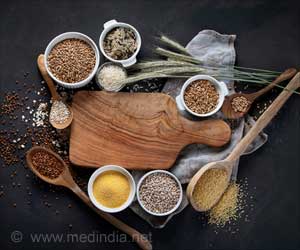
While Congress sources said that its manifesto would promise universal healthcare and free medicine for the poor, a BJP spokesperson refused to commit anything about what the party promises to do on the health front.
"Obviously health is one of the major issues on which the manifesto will speak," BJP spokesperson Nirmala Sitharaman told IANS.
Last year's economic survey pointed out that India has the lowest health spend - 4.1 percent - as a proportion of its GDP. Despite this, 70 percent of the population spends from its own pocket.
Even the private plus government spending is abysmally low compared to other nations. While the United States spends around 15.2 percent of its GDP on health, France spends 11.2 percent and Britain 8.4 percent. Countries like Brazil and South Africa spend around nine percent.
Stakeholders in the health sector and international agencies say that it is time health found a place in the political discourse of the world's largest democracy.
Advertisement
"We need more political discourse on healthcare in India", he added.
Advertisement
"Nearly 1.4 million children die each year before their fifth birthday. Unfortunately a majority of these deaths are preventable and low cost interventions to avert these deaths are available but fail to reach those who need them the most," she said.
"Saving these 1.4 million children that are dying of preventable causes should be the top priority of any political party in India. Saving the 56,000 mothers who die while delivering a baby should equally be topmost on the agenda of all political parties," the Unicef official told IANS.
"The need is to convert policies into action, especially for the most vulnerable and invisible children and women," she added.
Universal healthcare, clean drinking water and free drugs are some of the issues which are likely to find mention in the manifestos of the political parties for the April-May Lok Sabha elections.
According to sources, the Congress manifesto, which is yet to be released, is set to promise universal healthcare coverage, including free medicines at government hospitals and health centres.
Although improving healthcare cover has been on the Congress-led UPA's agenda for some time, progress on this front has been slow.
For the Congress, the poll promise to improve the healthcare system is an attempt to project its pro-poor image.
Congress Vice President Rahul Gandhi has been talking about the need for right to healthcare in his speeches. He told a gathering in Rajasthan Monday that the Congress intends to include the right to health in its manifesto. He had made similar remarks at a speech in Uttarakhand last month.
The UPA had begun the National Rural Health Mission (NRHM) which it claims has brought down maternal and child deaths in the country.
Sources in the BJP said the party was committed to making the right to clean water a fundamental right. Other promises by the BJP may include a comprehensive project to bring health for all by 2014 and introduction of a mandatory 'Dial 108 for ambulance at your doorstep' scheme throughout the country.
It is estimated that in India, spending on healthcare forces 39 million people each year into poverty.
Source-IANS









